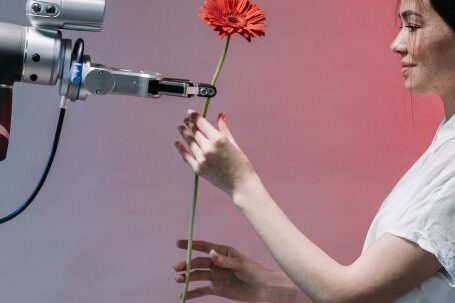In today’s fast-paced world, innovation is the key to success for businesses across industries. Companies are constantly striving to find new and creative ways to stay ahead of the competition and meet the ever-changing needs of their customers. One tool that has emerged as a game-changer in this quest for innovation is artificial intelligence (AI). With its ability to analyze vast amounts of data and make intelligent decisions, AI is revolutionizing the way businesses operate and accelerating the pace of innovation.
Enhancing Data Analysis
One of the main ways AI is accelerating innovation is by enhancing data analysis. Traditional methods of analyzing data can be time-consuming and often prone to human error. AI, on the other hand, can process large volumes of data in a fraction of the time it would take a human analyst. By leveraging machine learning algorithms, AI systems can identify patterns and trends in data that may not be immediately apparent to human analysts. This enables businesses to make data-driven decisions and uncover insights that can drive innovation.
Improving Customer Experience
Another area where AI is accelerating innovation is in improving the customer experience. AI-powered chatbots and virtual assistants are becoming increasingly common in customer service interactions. These virtual agents can provide instant responses to customer queries, saving time and improving customer satisfaction. Additionally, AI algorithms can analyze customer data to personalize the shopping experience, offering tailored recommendations and promotions. By leveraging AI, businesses can better understand their customers’ preferences and needs, leading to more innovative products and services.
Automation and Efficiency
AI is also driving innovation through automation and efficiency. Tasks that were once time-consuming and repetitive can now be automated with the help of AI systems. This frees up employees’ time to focus on more strategic and innovative initiatives. For example, AI-powered robots can automate manufacturing processes, leading to increased productivity and cost savings. AI can also optimize supply chain operations, predicting demand and optimizing inventory levels. By automating routine tasks and streamlining operations, AI allows businesses to allocate resources more efficiently and focus on innovation.
Enabling Predictive Analytics
Predictive analytics is another area where AI is accelerating innovation. By analyzing historical data, AI algorithms can make predictions about future events or outcomes. This can be especially valuable in industries such as finance and healthcare, where accurate predictions can have a significant impact. For example, AI algorithms can predict stock market trends or identify patients at risk of developing certain diseases. By enabling predictive analytics, AI allows businesses to make more informed decisions and anticipate future needs and trends, leading to innovative solutions.
Challenges and Opportunities
While AI presents many opportunities for accelerating innovation, it also comes with its own set of challenges. One of the main challenges is ensuring the ethical use of AI. As AI becomes more powerful and autonomous, there is a need to ensure that it is used in a responsible and unbiased manner. Another challenge is the potential impact on jobs. As AI automation increases, there is a concern that certain job roles may become obsolete. However, there are also opportunities for new job roles to emerge, such as AI trainers and data scientists.
In conclusion, artificial intelligence is a powerful tool that is accelerating innovation across industries. By enhancing data analysis, improving the customer experience, automating tasks, and enabling predictive analytics, AI is revolutionizing the way businesses operate. However, it is important to address the challenges associated with AI and ensure its ethical use. As businesses continue to embrace AI, the pace of innovation is set to accelerate even further, leading to exciting new possibilities for the future.





